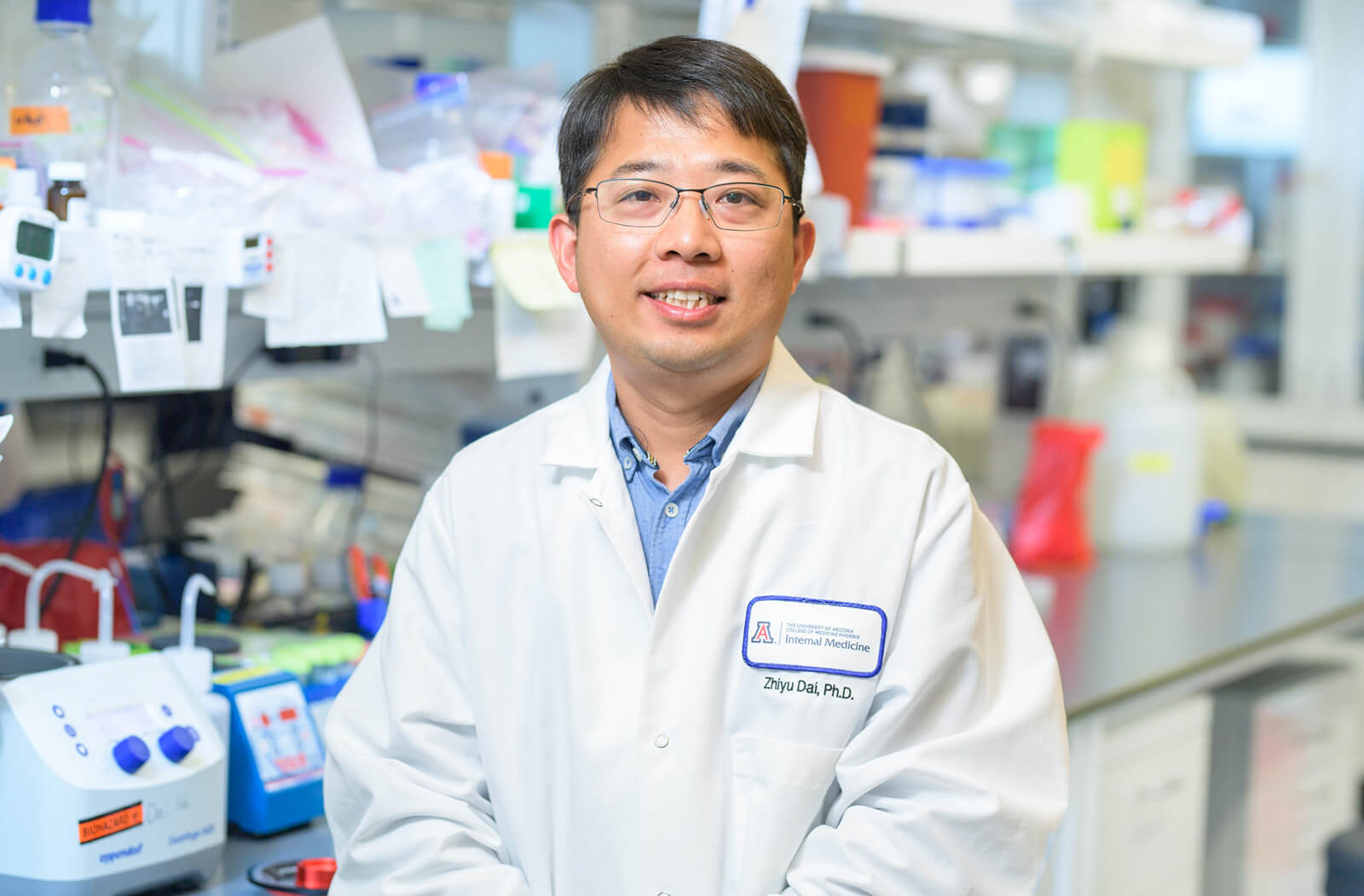
ABRC Grant to Support Research of Lung Disease Linked to Smoking

Zhiyu Dai, PhD, an assistant professor and director of Translational Endothelial Research in the Department of Internal Medicine at the University of Arizona College of Medicine – Phoenix, received a research grant for his studies on chronic obstructive lung disease (COPD)-associated with pulmonary hypertension (PH).

The research interest in Dr. Dai’s laboratory is studying lung vascular biology, the pathogenesis of pulmonary vascular diseases — such as PH — and the identification of targets for these diseases.
“Receiving the ABRC award serves as a source of motivation, encouraging us to continue our work in understanding how the diseases develop,” Dr. Dai said. “It can also provide opportunities for collaboration and networking with other researchers in our field and potentially make a greater impact on the prevention and treatment of this disease.”
Pulmonary vascular disease includes several complex conditions that affect the blood vessels in the lungs and make it difficult for the heart to pump oxygenated blood through them. The disease can lead to a range of symptoms, including shortness of breath, fatigue and chest pain — ultimately becoming life-threatening.
Current therapeutics aim to lessen the severity of symptoms to help improve patients’ qualify of life. A primary goal is to lessen stress on the heart and reduce the risk of heart failure. Dr. Dai’s research seeks to change that.
“I am motivated by a desire to better understand these diseases contributing factors, as well as developing new treatments that can help improve the lives of people living with these conditions,” Dr. Dai said.
Dr. Dai’s ABRC award is about investigating a sub-type of PH called chronic obstructive lung disease (COPD).
According to Dr. Dai, COPD is a major health problem in Arizona and is the third-leading cause of death in the state. An estimated 30 – 70% of patients with COPD also have PH, called PH-COPD.
“Understanding the pathogenesis of tobacco smoke-induced PH-COPD will lead to novel therapeutic approaches,” Dr. Dai said. “Our proposed studies will have a significant impact on understanding the pathogenesis of cigarette smoke-induced PH-COPD and could reveal a novel therapeutic target to treat patients with the condition.”
When it comes to mentors, Dr. Dai credits Michael Fallon, MD, chair of the Department of Internal Medicine, and Chris Glembotski, PhD, associate dean of Research and director of the Translational Cardiovascular Research Center, as two people who have been impactful in helping him navigate the complexities of research and developing the skills and knowledge needed to succeed for a junior faculty.
In the future, Dr. Dai hopes to continue contributing new understanding to the field of lung vascular biology and diseases by conducting original research and developing new theories or models.
“I will also communicate our findings and insights to the general public,” Dr. Dai said. “My ultimate goal is to make a significant beneficial impact on pulmonary translational medicine for patients with pulmonary vascular diseases.”
About the College
Founded in 2007, the University of Arizona College of Medicine – Phoenix inspires and trains exemplary physicians, scientists and leaders to advance its core missions in education, research, clinical care and service to communities across Arizona. The college’s strength lies in our collaborations and partnerships with clinical affiliates, community organizations and industry sponsors. With our primary affiliate, Banner Health, we are recognized as the premier academic medical center in Phoenix. As an anchor institution of the Phoenix Bioscience Core, the college is home to signature research programs in neurosciences, cardiopulmonary diseases, immunology, informatics and metabolism. These focus areas uniquely position us to drive biomedical research and bolster economic development in the region.
As an urban institution with strong roots in rural and tribal health, the college has graduated more than 1,000 physicians and matriculates 130 students each year. Greater than 60% of matriculating students are from Arizona and many continue training at our GME sponsored residency programs, ultimately pursuing local academic and community-based opportunities. While our traditional four-year program continues to thrive, we will launch our recently approved accelerated three-year medical student curriculum with exclusive focus on primary care. This program is designed to further enhance workforce retention needs across Arizona.
The college has embarked on our strategic plan for 2025 to 2030. Learn more.